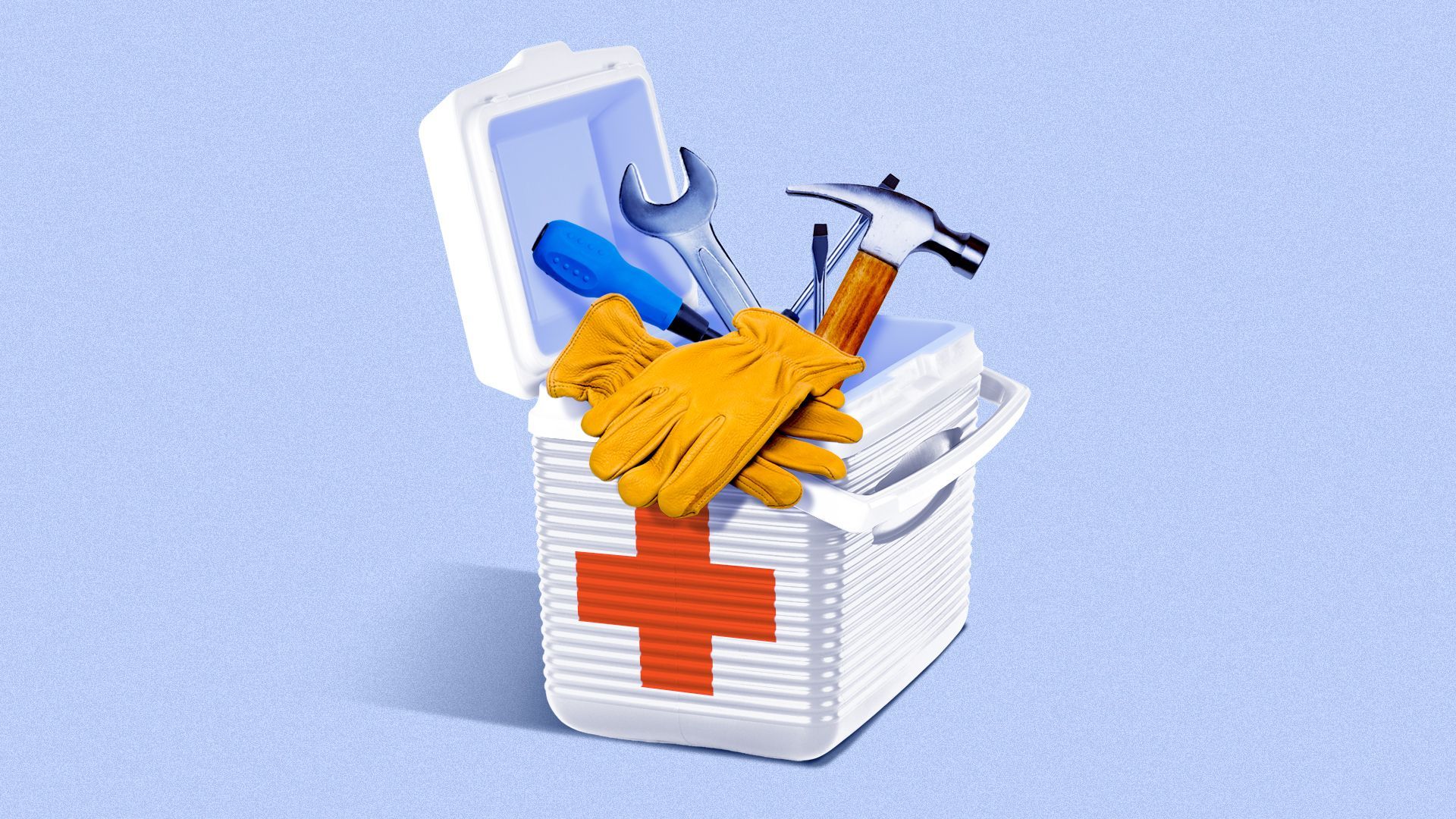
Illustration: Sarah Grillo/Axios
From IT failures that cost patients a chance at a life-saving organ to doctors salvaging kidneys from a battered box with tire tracks on it, the nation's organ transplant system has come to be defined by harrowing anecdotes. Not to mention inequities and mismatched supply and demand.
Driving the news: After years of complaints from transplant surgeons and patient advocates, the Biden administration is breaking up the monopoly held for nearly four decades by the non-profit United Network for Organ Sharing (UNOS).
- The federal plan would open the system up to competitive bidding and make an immediate priority of upgrading the computer system which matches patients and organs.
- The overhaul follows scathing reports from the National Academies of Sciences, Engineering, and Medicine and the White House's U.S. Digital Service, as well as a congressional probe that last year raised alarms about long wait times, disparities, creaky infrastructure, and organs lost in transit.
What they're saying: "The announcement to break up the national organ monopoly is a huge win for patients," Jennifer Erickson, a senior fellow at the Federation of American Scientists who served in the Obama White House Office of Science and Technology Policy working on organ donation policy, told Axios.
- She called a Senate Finance Committee investigation, which blamed transplant screening mistakes for 70 deaths and another 249 patients developing diseases, "damning." UNOS' "failures have led to thousands of unnecessary patient deaths, which fall disproportionately on patients of color," she said.
The big picture: More than 100,000 people are awaiting organ transplants in the U.S. with about 117 transplants a day, per UNOS. The organization, which Congress created in 1984 and works with local procurement groups, marked its 1 millionth transplant last fall.
- There are about 90,000 people waiting for kidneys, about 11,000 waiting for livers, about 3,400 waiting for hearts and about 1,000 waiting for lungs, UNOS data shows.
- With about 5,000 a people a year dying on waiting lists, advocates argue the number of transplants — particularly hearts or lungs that have smaller waiting lists — could be much higher. About one in five kidneys from deceased donors are not used, per the National Academies report.
- "If we had a fully effective system, we could actually fully service the waiting list for hearts, lungs and livers within a couple of years," said Greg Segal, co-founder of Organize, a non-profit patient advocacy group focused on increasing the number of transplantable organs. His father waited five years for a heart transplant and his aunt died while awaiting a transplant.
- "The idea that there is meaningful competition to not only replace UNOS, but ensure that any contractor or contractors that operate in this system understand there is true accountability for performance and always feel that pressure, is crucial," he told Axios.
The other side: "We welcome a competitive and open bidding process," UNOS said in a statement. "We believe we have the experience and expertise required to best serve the nation’s patients and to help implement HRSA's proposed initiatives."
What we're watching: Health Resources and Services Administration chief Carole Johnson told the New York Times she envisions multiple bidders for different transplant system tasks with her agency setting the standards.
- It's unclear whether Congress will go along with President Biden's bid to fund the changes with $67 million.
- It's also unclear whether they'll back legislative proposals to remove an appropriations cap on the Organ Procurement and Transplant Network contracts to help expand the pool of entities eligible to compete.
Source: Read Full Article
